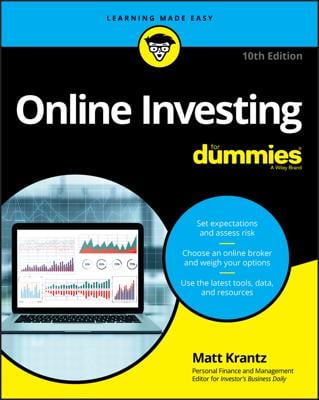Wildly successful initial public offerings leave investors talking and fantasizing for years. Investors who got into Microsoft or Google at the IPO prices have made a bundle.
Given how desired shares of hot IPOs are, it's not surprising that investment bankers hold them very closely. Investment bankers' role in the IPO process remains one of their most high-profile functions. The investment bankers are in charge of helping the company promote itself to prospective investors and determine how much to sell the shares for.
But in many ways, the idea of an IPO is a bit of a misnomer, because they're not entirely public. Investment bankers typically follow a process that can make it difficult for regular investors to get a piece of an IPO.
Shares of an IPO are typically first sold at the initial offering price to the large clients of investment banks. These clients, usually mutual funds, hedge funds, or pension funds, are then free to sell the shares on the open market on an exchange such as the New York Stock Exchange or NASDAQ. This usually happens the day after the IPOs are sold to the lucky initial investors at the offering price. Most investors, then, must often wait until the IPO starts to trade on a stock exchange, often paying a higher price as the public bids on those coveted shares.
But don't get too discouraged. Armed with your knowledge of how investment banking works, you can find a way to get into the IPO process. Here are some tips:
Work with your online brokerage. Most of the major online brokerage firms have cut deals with select investment bankers to get shares of IPOs. For instance, online brokerage Fidelity has a deal with Deutsche Bank and Kohlberg Kravis Roberts (KKR) to get shares of select upcoming IPOs at the offering price. If you're interested in a particular IPO, check with your online brokerage to see if it offers shares.
Build a relationship with an investment banking firm. If an IPO is in particularly high demand, you can be sure the investment banks doing the deal will be judicious with who gets shares. And in these cases, the vast majority of shares will go to the client's own customers. If you think that buying IPOs is going to be a frequent occurrence with you, you might consider creating a brokerage firm account with one of the investment banks that's doing the types of IPOs you're interested in. Keep in mind, though, that the brokerage units of investment banking firms tend to charge much higher commissions and fees than discount brokerage firms, so you're not getting something for nothing.
Buy a mutual fund. Instead of lamenting the fact that IPOs usually go only to mutual funds, profit from that knowledge! You can find out which mutual funds typically get shares of IPOs or invest in them using the research tools at Morningstar. If you own a mutual fund that gets shares of hot IPOs, you win!
Wait. Sometimes the best advice in finance is to do nothing. Remember: IPOs are risky investments that can, and often do, decline in value. Instead of rushing to buy in at the offer price, you may want to cool your heels and wait. Waiting worked great for investors in social-networking stock Facebook, which went public in mid-2012. Shares of the company crashed about 40 percent from its offering price just months after its IPO, meaning investors who waited got the shares for 40 percent less than the initial investors!
Most important, carefully consider whether you should be buying shares of an IPO at all. IPOs are untested securities often of companies with no track records. Even professional investors have difficultly buying IPOs correctly and making money. Just because you can buy an IPO, doesn't mean you should.

